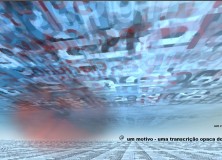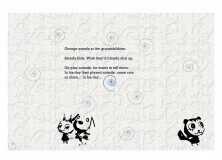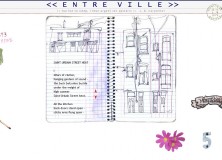Your cart is currently empty!
2010
-
New Scientist Discovers Electronic Literature
Members of the Electronic Literature Organization no doubt remember the first time they heard about electronic literature. That exhilarating moment wrapped around a sense of possibility and a desire to… Read more.
-
Electronic Literature Videos
Bringing electronic literature artists and critics into your classroom can be as easy as a quick jog through YouTube or Vimeo. Here is the beginning of a playlist of videos… Read more.
-
eliterature.org Blinked, Is Back
We apologize for our site being down as we switched to a new hosting service. We worked to restore the Web publication of the Electronic Literature Collection, volume 1 first… Read more.
·
-
New ELO Officers & 3 New Board Members
With the 4th International Conference, ELO announces its new officers and board members. Taking over the reins from Joseph Tabbi will be incoming President Nick Montfort and Vice President Dene… Read more.
·
-
ELO Archive and Innovate underway @ Brown
With the start of Deena Larsen’s workshop, E-Lit 101, the 4th International Conference & Festival of the Electronic Literature Organization is underway at Brown University where both ELO, literary hypertext,… Read more.
-
Electronic literature jobs at the University of Bergen
ELO Co-founder and Board member, Scott Rettberg, sends word of 2 opportunities in Norway! (Note: Summer deadlines for applications.) Two opportunities are now available at the University of Bergen’s Digital Culture… Read more.
-
PhD studentship at the Edinburgh College of Art
Announcing an opportunity for an electronic lit-related Ph.D. in Scotland! eca edinburgh college of art PhD Studentship. £13,290 per annum maintenance will be provided, and course fees will be paid… Read more.
-
Poemas no meio
by Rui Torres. Poemas no meio do caminho, written in Portuguese, is a poetry project that offers the reader different reading possibilities, depending on her navigational decisions. There are two… Read more.
-
Tailspin
by Christine Wilks. From birdsong to video game music to the ringing sounds of tinnitus, sound is at the core of Tailspin as both theme and structural device. A story… Read more.
-
Entre Ville
by J.R. Carpenter. Entre Ville is J.R. Carpenter’s affectionate and keenly perceptive homage to her former Montréal neighborhood, Mile End, and its many inhabitants. With poetic text framed by videos… Read more.



